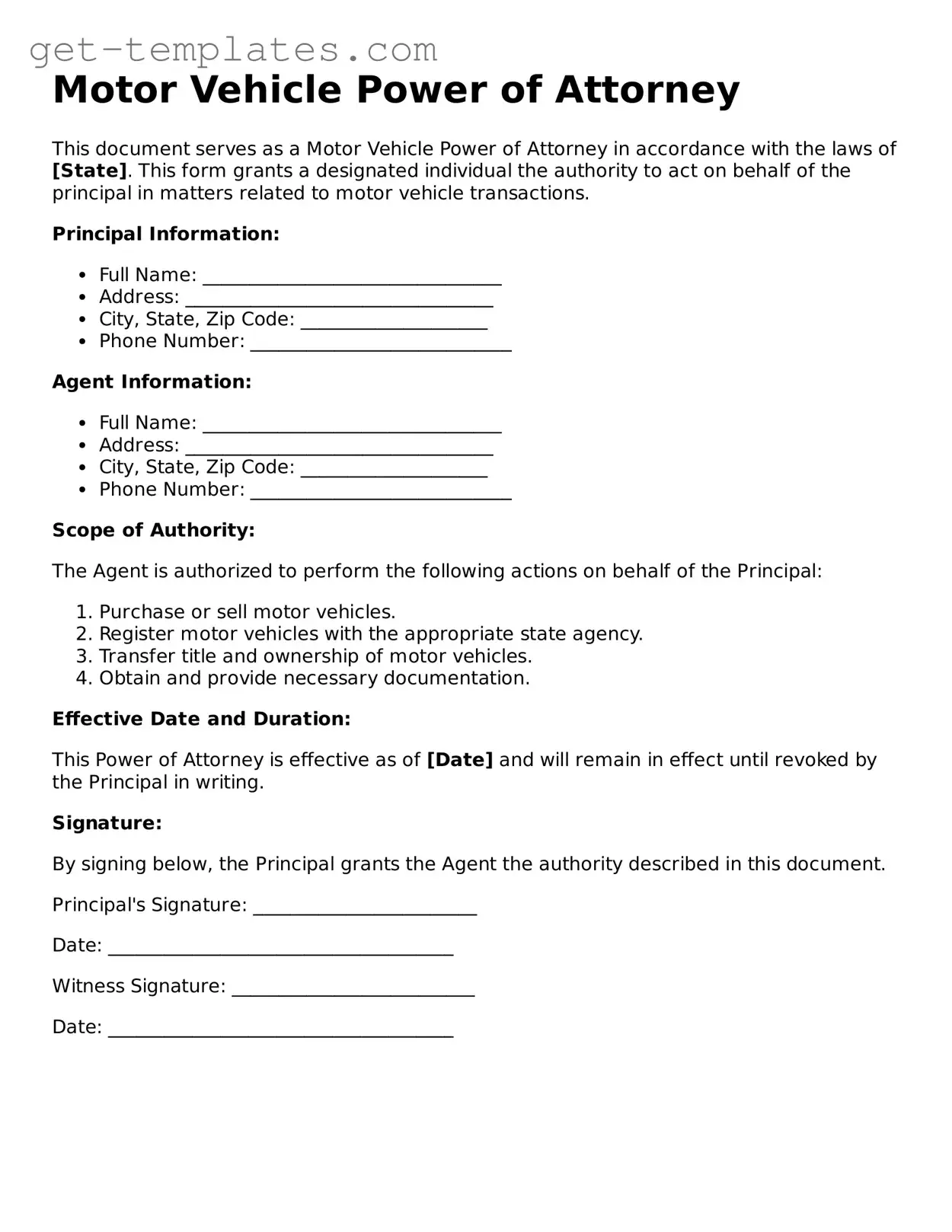A Motor Vehicle Power of Attorney form allows one person to authorize another to handle specific tasks related to a motor vehicle on their behalf. This can include transferring ownership, registering a vehicle, or obtaining a title. It’s a useful tool when the vehicle owner cannot be present for these transactions.
The agent can be anyone you trust to act on your behalf. This could be a family member, friend, or even a professional, such as a lawyer or a car dealership representative. Just ensure that the person you choose is reliable and understands your wishes.
Why would I need a Motor Vehicle Power of Attorney?
There are several reasons you might need this form:
-
If you're unable to attend a transaction due to illness or travel.
-
If you're selling a vehicle and want someone to finalize the sale for you.
-
If you’re transferring a vehicle to a family member and cannot be present.
To complete the Motor Vehicle Power of Attorney form, follow these steps:
-
Provide your name and contact information.
-
List the name and contact information of your agent.
-
Specify the powers you are granting, such as selling, transferring, or registering the vehicle.
-
Sign and date the form in front of a notary, if required by your state.
In many states, notarization is not mandatory, but it is highly recommended. Having the form notarized adds an extra layer of authenticity and can help prevent disputes later on. Always check your state’s requirements to be sure.
How long is the Motor Vehicle Power of Attorney valid?
The validity of the form can vary based on state laws and the specific terms you include. Generally, it remains valid until the task is completed or until you revoke it in writing. If you want to set a specific expiration date, you can do so in the form.
Can I revoke the Motor Vehicle Power of Attorney?
Yes, you can revoke it at any time. To do so, you should create a written notice stating your intention to revoke the Power of Attorney. Notify your agent and any relevant parties, such as the DMV, to avoid confusion.
What happens if the agent misuses their power?
If your agent misuses their authority, you may have legal recourse. It’s important to choose someone you trust. If you suspect misuse, consult with a legal professional to understand your options and take appropriate action.
This form is generally used for tasks related to ownership and registration. However, some specific tasks may require additional documentation or forms. Always check with your local DMV or relevant authority to ensure you have everything you need.
You can often find the Motor Vehicle Power of Attorney form on your state’s DMV website. Additionally, many legal websites offer templates that you can customize. Ensure that you use the correct form for your state to avoid any issues.

